Search Results for: Dolphins
Skip to resultsCan’t find what you’re looking for? Visit our FAQ page.
455 results for: Dolphins
-
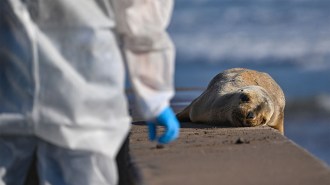 Health & Medicine
Health & MedicineBird flu has been invading the brains of mammals. Here’s why
Although H5N1 and its relatives can cause mild disease in some animals, these viruses are more likely to infect brain tissue than other types of flu.
-
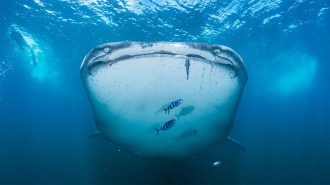 Animals
Animals50 years after ‘Jaws,’ sharks face their own terror
Humans have driven sharks and their cousins to the brink of extinction. The health of the entire ocean is at stake.
-
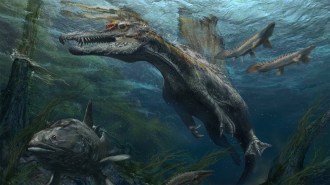 Paleontology
PaleontologyCould Spinosaurus swim? The fierce dinosaur ignites debate
Researchers are still divided about whether Spinosaurus was a swimmer or a wader. What’s clear is that confirming the first swimming dinosaur would be a game-changer.
-
 Life
LifeThis biophysicist’s work could one day let doctors control immune cells
The Stanford biophysicist thinks that understanding the mechanics of cell movement could allow scientists to manipulate immune cells.
By Meghan Rosen -
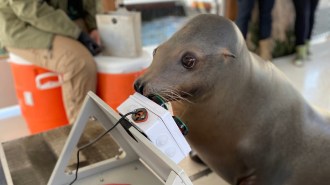 Animals
Animals50 years ago, the U.S. Navy enlisted sea lions and other marine mammals
Today, dolphins and sea lions in the U.S. Navy Marine Mammal Program protect harbors and participate in research on animal health and well-being.
-
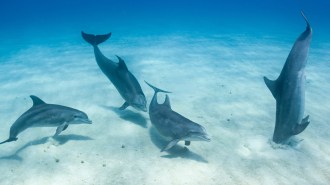 Animals
AnimalsFish beware: Bottlenosed dolphins may be able to pick up your heartbeat
Fish, sharks and platypuses are adept at sensing electrical signals living things give off. Bottlenosed dolphins make that list too, studies suggests.
-
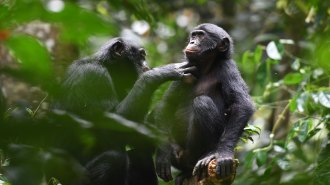 Life
LifeBonobos, like humans, cooperate with unrelated members of other groups
Cooperation between unrelated individuals in different groups without clear and immediate benefit was thought to be uniquely human. Its presence in bonobos may help explain its evolution.
By Jake Buehler -
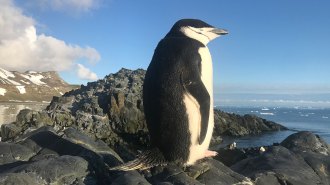 Animals
AnimalsThese nesting penguins nod off over 10,000 times a day, for seconds at a time
Micronaps net chinstrap penguins over 11 hours of sleep a day, offering some rest while staying vigilant against predators and competitors.
By Jake Buehler -
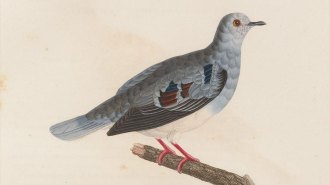 Animals
AnimalsThis bird hasn’t been seen in 38 years. Its song may help track it down
Using bioacoustics, South American scientists are eavesdropping on a forest in hopes of hearing the song of the long-missing purple-winged ground dove.
-
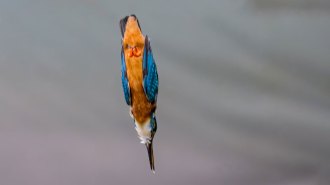 Animals
AnimalsHere’s how high-speed diving kingfishers may avoid concussions
Understanding the genetic adaptations that protect the birds’ brains when they dive for food might one day offer clues to protecting human brains.
-

The challenges of seeing the profusion of tiny life
Editor in chief Nancy Shute marvels at the diversity of tiny life-forms known as protists.
By Nancy Shute -
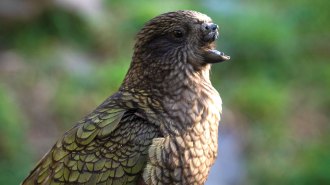 Animals
AnimalsWhat parrots can teach us about human intelligence
By studying the brains and behaviors of parrots, scientists hope to learn more about how humanlike intelligence evolves.